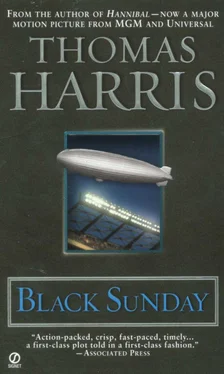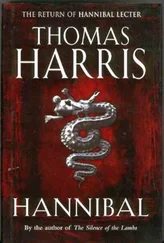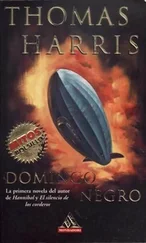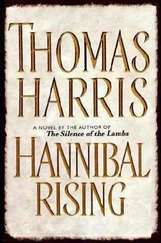Muhammad Fasil checked the cable office in Beirut hourly all day. At first he hoped Hassan’s cable from the Azores had only been delayed. Always before, the cables had come by noon. There had been three of them—from Benghazi, Tunis, and Lisbon—as the old freighter plowed westward. The wording varied in each, but they all meant the same thing—the explosives had not been disturbed. The next one should be “Mother much improved today” and it should be signed Jose. At six p.m., when the cable had still not arrived, Fasil drove to the airport. He was carrying the credentials of an Algerian photographer and a gutted speed graphic camera containing a .357 Magnum revolver. Fasil had made the reservations as a precaution two weeks before. He knew he could be in Ponta Delgada by four p.m. the next day.
Captain Larmoso relieved his first mate at the helm when the Leticia raised the peaks of Santa Maria early on the morning of November 2. He skirted the small island on the southwest side, then turned north for San Miguel and the port of Ponta Delgada.
The Portuguese city was lovely in the winter sun, white buildings with red tiled roofs, and evergreens between them rising nearly as high as the bell tower. Behind the city were gentle mountain slopes, patched with fields.
The Leticia looked scalier than ever tied at the quay, her faded Plimsoll line creeping up out of the water as the crew off-loaded a consignment of reconditioned light agricultural equipment and creeping down again as crates of bottled mineral water were loaded aboard.
Larmoso was not worried. The cargo handling involved only the aft hold. The small, locked compartment in the forward hold would not be disturbed.
Most of the work was completed by the afternoon of the second day, and he gave the crew shore leave, the purser doling out only enough cash to each man for one evening in the brothels and bars.
The crew trooped off down the quay, walking quickly in anticipation of the evening, the foremost sailor with a blob of shaving cream beneath his ear. They did not notice the thin man beneath the colonnade of the Banco Nacional Ultra marino, who counted them as they passed.
The ship was silent now except for Captain Larmoso’s footsteps as he descended to the engine room workshop, a small compartment dimly lit by a bulb in a wire cage. Rummaging through a pile of cast-off parts he selected a piston rod, complete with wristpin assembly, which had been ruined when the Leticia’s engine seized off Tobruk in the spring. The rod looked like a great metal bone as he hefted it in his hands. Confident that it was heavy enough to take Hassan’s body down the long slide to the bottom of the Atlantic, Larmoso carried the rod aft and stowed it in a locker near the stem along with a length of line.
Next he took from the galley one of the cook’s big burlap garbage bags and carried it forward through the empty wardroom toward the forward companionway. He draped the bag over his shoulder like a serape and whistled between his teeth, his footfalls loud in the passageway. Then he heard a slight sound behind him. Larmoso paused, listening. Probably the noise was only the old man on anchor watch walking on the deck above his head. Larmoso stepped through the wardroom hatch into the companionway and went down the metal steps to the level of the forward hold. But instead of entering the hold, he slammed its hatch loudly and stood against the bulkhead at the foot of the companionway, looking up the metal shaft to the hatch at the top of the dark steps. The five-shot Smith & Wesson Airweight looked like a child’s licorice pistol in his big fist.
As he watched, the wardroom hatch swung open and, as slowly as a questing snake, the small, neat head of Muhammad Fasil appeared.
Larmoso fired, the blast incredible inside the metal walls, the bullet screaming off the handrail. He ducked into the hold and slammed the hatch behind him. He was sweating now, and the rank smell of him mixed with the smells of rust and cold grease as he waited in the darkness.
The footsteps descending the companionway were slow and evenly spaced. Larmoso knew Fasil was holding the railing with one hand and keeping his gun trained on the closed hatch with the other. Larmoso scrambled behind a crate twelve feet from the hatch Fasil had to enter. Time was on his side. Eventually the crew would straggle back. He thought of the deals and excuses he might offer Fasil. Nothing would work. He had four shots left. He would kill Fasil when he came through the hatch. It was settled.
The companionway was quiet for a second. Then Fasil’s Magnum roared, the bullet blasting through the hatch and sending metal fragments flying through the hold. Larmoso fired back at the closed hatch, the .38 special bullet only dimpling the metal, and fired again and again as the hatch flew open and the dark shape tumbled through.
Even as he fired the last round, Larmoso saw by the muzzle flash that he had shot a sofa pillow from the wardroom. Now he was running, tripping and cursing, through the dark hold toward the forward compartment.
He would get Hassan’s pistol. He would kill Fasil with it.
Larmoso moved well for a big man, and he knew the layout of the hold. In less than thirty seconds he was at the compartment hatch, fumbling with the key. The stench that puffed over him when he opened the hatch gagged him as he plunged inside. He did not want to show a light, and he crawled across the deck in the black compartment, feeling for Hassan and muttering softly to himself. He butted into the crates and crawled around them. His hand touched a shoe. Larmoso felt his way up the trouser leg and over the belly. The gun was not in the waistband. He felt on either side of the body. He found the arm, he felt it move, but he did not find the gun until it exploded in his face.
Fasil’s ears were ringing and several minutes passed before he could hear the hoarse whisper from the forward compartment.
“Fasil. Fasil.”
The guerrilla shone his small flashlight into the compartment, tiny feet scurrying from the beam. Fasil played the light over the red mask of Larmoso, lying dead on his back, then stepped inside.
Kneeling, he took the rat-ravaged face of Ali Hassan in his hands. The lips moved.
“Fasil.”
“You have done well, Hassan. I’ll get a doctor.” Fasil could see that it was hopeless. Hassan, swollen with peritonitis, was beyond help. But Fasil could kidnap a doctor a half hour before the Leticia sailed and make him come along. He could kill the physician at sea before the ship reached New York. Hassan deserved no less. It was the humane thing to do.
“Hassan, I will be back in five minutes with the medical kit. I will leave the light with you.”
A faint whisper. “Is my duty done?”
“It is done. Hold on, old friend. I will bring morphine now and then a doctor.”
Fasil was feeling his way aft through the dark hold when Hassan’s pistol went off behind him. He paused and leaned his head against the ship’s cold iron. “You will pay for this,” he whispered. He was talking to a people that he had never seen.
The old man on anchor watch was still unconscious, with a swollen lump on the back of his head where Fasil had slugged him. Fasil dragged him to the first mate’s cabin and laid him on the bunk, then sat down to think.
Originally the plan was to have the crates picked up at the Brooklyn dock by the importer, Benjamin Muzi. There was no way of knowing if Larmoso had contacted Muzi and enlisted his aid in this treachery. Muzi would have to be dealt with anyway because he knew far too much. Customs would be curious at the absence of Larmoso. Questions would be asked. It seemed unlikely that the others on the ship knew what was in the crates. Larmoso’s keys were still dangling from the lock on the forward compartment when the captain was killed. Now they were in Fasil’s pocket. The plastique must not go into New York Harbor—that was clear.
Читать дальше












